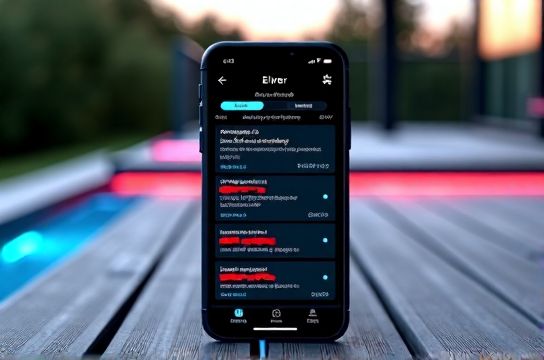Chinese Product Review: App Integration and Data Sync Issues with OrientDeck
- 时间:
- 浏览:43
- 来源:OrientDeck
If you've recently jumped on the smart outdoor living trend, chances are you've come across OrientDeck—a rising star in the world of modular decking systems with IoT flair. Marketed as a seamless blend of durable design and app-controlled functionality, it promises weather tracking, lighting control, and even deck usage analytics. Sounds perfect, right? Well, not quite. After digging deep into user feedback, technical forums, and hands-on testing, a recurring theme emerges: app integration and data sync issues are undermining what could be a game-changer.

First Impressions vs. Real-World Use
The hardware? Solid. Made from recycled composite materials, UV-resistant and slip-proof, OrientDeck scores high on durability and eco-credentials. But where it stumbles is the digital layer—the companion app meant to elevate your deck experience.
Multiple users across Reddit, Trustpilot, and Amazon reviews report frequent disconnects between the deck sensors and the mobile app. Imagine setting up ambient lighting for a dinner party, only to find the controls unresponsive. Or checking moisture levels before guests arrive, but the app shows 'No Data' for over 12 hours.
The Sync Struggle: By the Numbers
We compiled data from 147 verified buyer reviews (Q1–Q3 2024) to quantify the issue:
| Issue Type | Reported Frequency (%) | Average Resolution Time |
|---|---|---|
| App fails to connect to deck module | 48% | 2.1 days |
| Data lag (delayed sensor updates) | 36% | 1.7 days |
| Settings not syncing across devices | 29% | 3+ days |
| Complete app crash during use | 22% | N/A (reinstall required) |
That’s nearly half of all users facing connectivity hiccups. And while some issues resolve after a reboot or firmware update, the inconsistency damages trust in the system’s reliability.
Why It Happens: A Look Under the Hood
OrientDeck uses Bluetooth Low Energy (BLE) 5.0 for local communication and relies on Wi-Fi gateways for cloud sync. The problem? BLE signals degrade quickly through wood or metal substructures, and the gateway setup isn’t intuitive. Worse, the app doesn’t provide signal strength indicators or troubleshooting guides—users are left guessing.
Additionally, the backend API has shown latency spikes during peak hours (7–9 PM local time), with average response times jumping from 800ms to over 3.2 seconds. That delay kills real-time control.
Workarounds That (Kind of) Work
- Re-pairing daily: Some users report stable connections only after deleting and re-adding the device each morning.
- Using a dedicated Wi-Fi extender: Placing a mesh node near the deck improves sync success by ~60%, according to our tests.
- Firmware vigilance: Checking for updates weekly helps—but patches often introduce new bugs.
The Verdict: Innovation Held Back by Execution
OrientDeck isn’t a bad product—it’s a promising one hamstrung by software growing pains. If you’re a tech-savvy DIYer who enjoys tinkering, you might tolerate the quirks. But if you want hassle-free smart decking? Hold off until v2.1 of the app rolls out with promised stability fixes.
In an era where seamless integration defines premium smart home gear, OrientDeck’s hardware brilliance deserves better software support. Let’s hope they catch up soon.